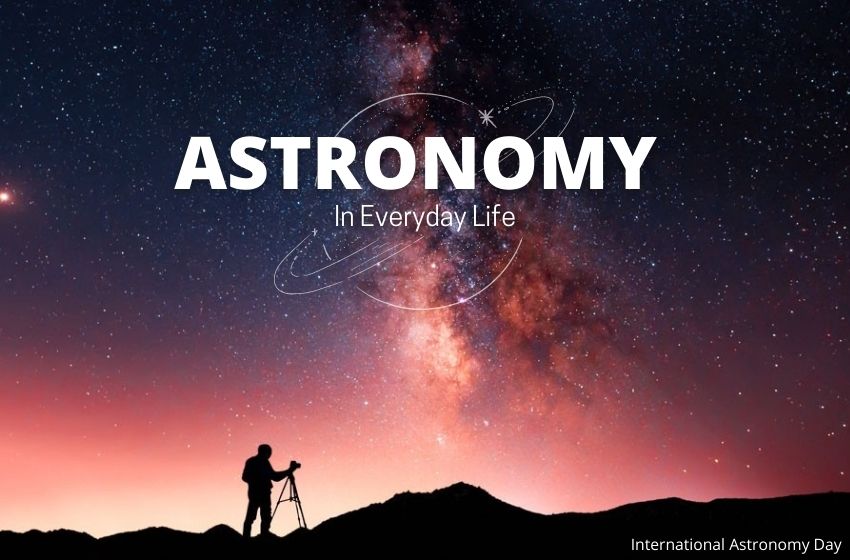
Important Impact Of Astronomy In Everyday Life We Should Know
- New Innovation & Researches Technology
 Sophia Silva
Sophia Silva- May 7, 2022
- 0
- 6 minutes read
The science of astronomy can surely feel like “out of this world”, but it has also directed several innovations that are used in our daily lives. On this World Astronomy Day, let us talk about astronomy in everyday life and how it is shaping our future.
From the earliest days of civilization, astronomy has always had an enlarged impact on mankind. Ancient humans offered names to the constellations and monitored them so they knew the ideal time to plant their crops. That is when they identified the uses of stars in daily life. Astrologers kept a careful eye on the sky for any alteration that might foretell doom. And to the average individual, the heavens catered as a storybook, recording favorite legends such as the blockbuster films of the day.
Impacts Of Astronomy In Everyday Life
Astronomy is the research of space and everything that surrounds it. Astronomers do not always have their eyes in the clouds. They have to focus on day-to-day dimensions also. Here are several advances in astronomy that have contributed to the quality of our daily life. So without any further delay, let us begin with the impact of astronomy in everyday life. Here are the 5 importance of astronomy in everyday life.
1. Communications
When we talk about astronomy in everyday life the first thing that crosses our mind is communication. In the 1990s, astronomers in Australia researching black holes employing radio waves contributed to the innovation of Wi-Fi by creating a microchip that enhanced the wireless transfer of radio waves.
Their primary aim was to find tiny exploding black holes which need the use of mathematical equations to cut via noise and create sharp images. While the astronomers did not end up finding these black holes, this technology was refined and put to use to enable portable devices to connect to wireless networks.
2. Computing
Astronomers assemble an impressive portion of data to learn about the universe. One of the most effective methods of processing data is grid computing. Here, computers distributed throughout big distances yet linked via a network operate together to treat data as efficiently as possible. Astronomers, which include those working at the Search for Extraterrestrial Intelligence (SETI) Institute have been important in popularizing and refining grid computing.
3. Environmental science
When we talk about the importance of astronomy in our daily lives we cannot ignore this invention. Learning about other planets in our solar system can educate us about the changing climate of Earth. Popular climate scientists such as Dr. James Hansen (Columbia University) have formulated models and theories for global warming by first researching the climate of Venus. It is believed that the atmosphere of Venus used to look more like the present atmosphere of Earth. By knowing how radiation is transported via the outer gaseous layers of Venus, scientists have been able to better structure the impacts of aerosols and gasses on the climate of our planet.
4. Imaging
Most mobile phones presently offer an integrated high-resolution camera. The little sensors in these smartphones called CCDs (charge-coupled devices) were initially used in astronomy in 1976.
Supersensitive CCDs were created for the Hubble Space Telescope and several other telescopes in space and on the ground as well. These CCDs have been reduced over the years for astronomical instrumentation, creating them perfect for use in personal cameras, mobile phones, and laptops.
5. Medicine
Medical repercussions of astronomical technologies maybe some of the most impactful elements of astronomy in everyday life. A technique known as interferometry that is used in astronomy to learn radio waves is used for medical imaging techniques used for taking scans of internal organs and other soft tissue of a human. Instances include computerized tomography (CAT) scans, magnetic resonance imaging (MRI) scans, and positron emission tomography (PET) scans.
Wrapping Up
Human curiosity navigates us to ask questions about the universe and also our place within it. Astronomy is a scientific, formal way to search for the answers to basic questions, like:
- Who are we?
- Where are we?
- Where did everything come from?
- What is the age of the universe?
Astronomy has the potential to answer all the above questions and drive us more to question the state of our existence. The impact of astronomy in everyday life is immense and that cannot be denied and also the importance of astronomy in modern education. So on this World Astronomy Day, we thank all astronomers who are working so hard to make our existence easy.

